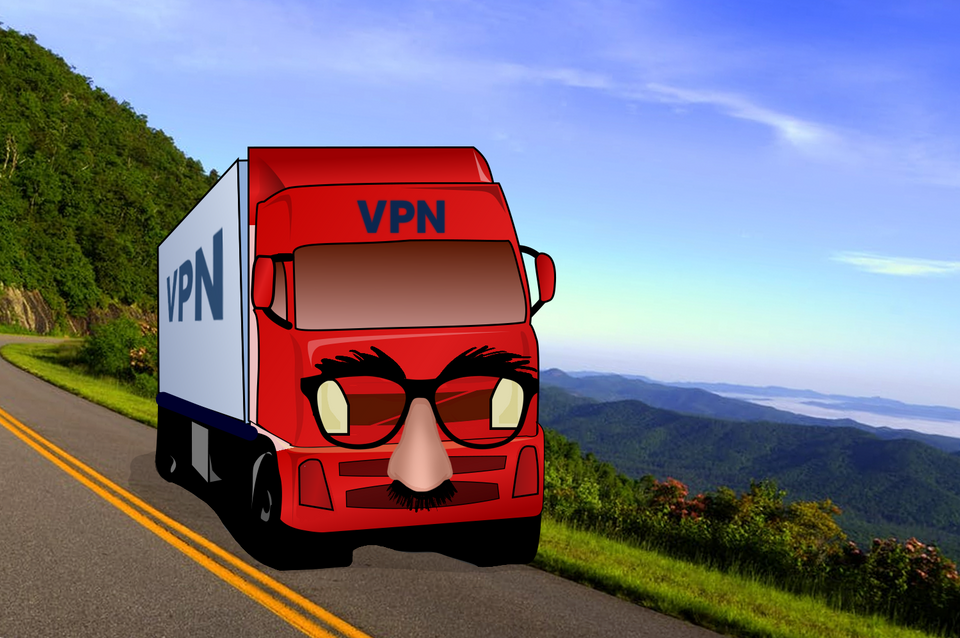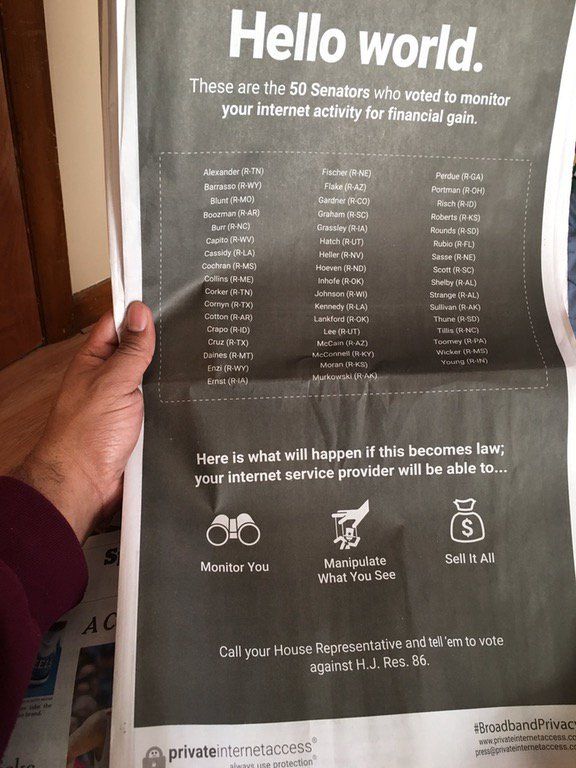Looking to hide your traffic from ISPs? Not all VPNs are equal

As President Trump prepared to sign into law on Monday a bill that rolls back consumer privacy protections and allows Internet service providers to sell customer data without permission, Google searches for virtual private networks, which can help consumers keep their Internet use private, rightly skyrocketed.
VPNs use specialized software to create encrypted tunnels between consumer devices and ISPs such as broadband Internet or cellular data providers, says Andrew Lewman, who led the Tor Project from 2009 to 2015 and now serves Farsight Security as chief revenue officer. They’ve long been popular among businesses, journalists, and activists seeking to protect their Internet activity. And over time, they’ve become increasingly popular among consumers.
“With a VPN, all anybody will see is encrypted traffic coming out of your device,” Lewman says. “Most VPNs will let you route anything over them: chats, browsing, or accessing corporate files.”
Many outlets have dedicated resources to helping people choose a VPN. But given a wide variety in quality and cost, selecting the right VPN for you can require a little digging, says Richard Forno, director of the Graduate Cybersecurity Program at the University of Maryland at Baltimore County.

“People are scared and buying the first VPN product they find,” Forno says. Before buying one, he suggests looking at respected online reviews, such as this VPN comparison chart, the annual VPN comparison at TorrentFreak, and VPN reviews at respected software review sites. He also advises looking into whether the VPN vendor does the following:
- Does it actually encrypt user data? [This offers more protection, and not all VPNs work as promised.]
- Does it hide DNS lookups, which can be used to identify the VPN user? [This offers more protection.]
- Does it record and log user traffic, potentially allowing someone to unmask your identity? [De-anonymization defeats the purpose of using a VPN.]
- Does it activate with a single touch or click? [This adds convenience.]
- Does it offer a mobile app that encrypts not only Wi-Fi but cellular data? [This increases functionality.]
Forno says very few high-quality VPNs are free to install and use. One free VPN worth consideration is The Tor Project, which hides your Internet traffic as it sends data through a series of “hops” between servers, compared with the easier-to-decrypt single hop most VPNs use. But because the multiple hops tend to reduce data transmission and website load speeds, Tor tends to be favored by people for whom privacy and anonymity is more important than efficiency.
“If you’re seriously looking at VPNs,” Forno says, “you’ve got to do some informed shopping.”
